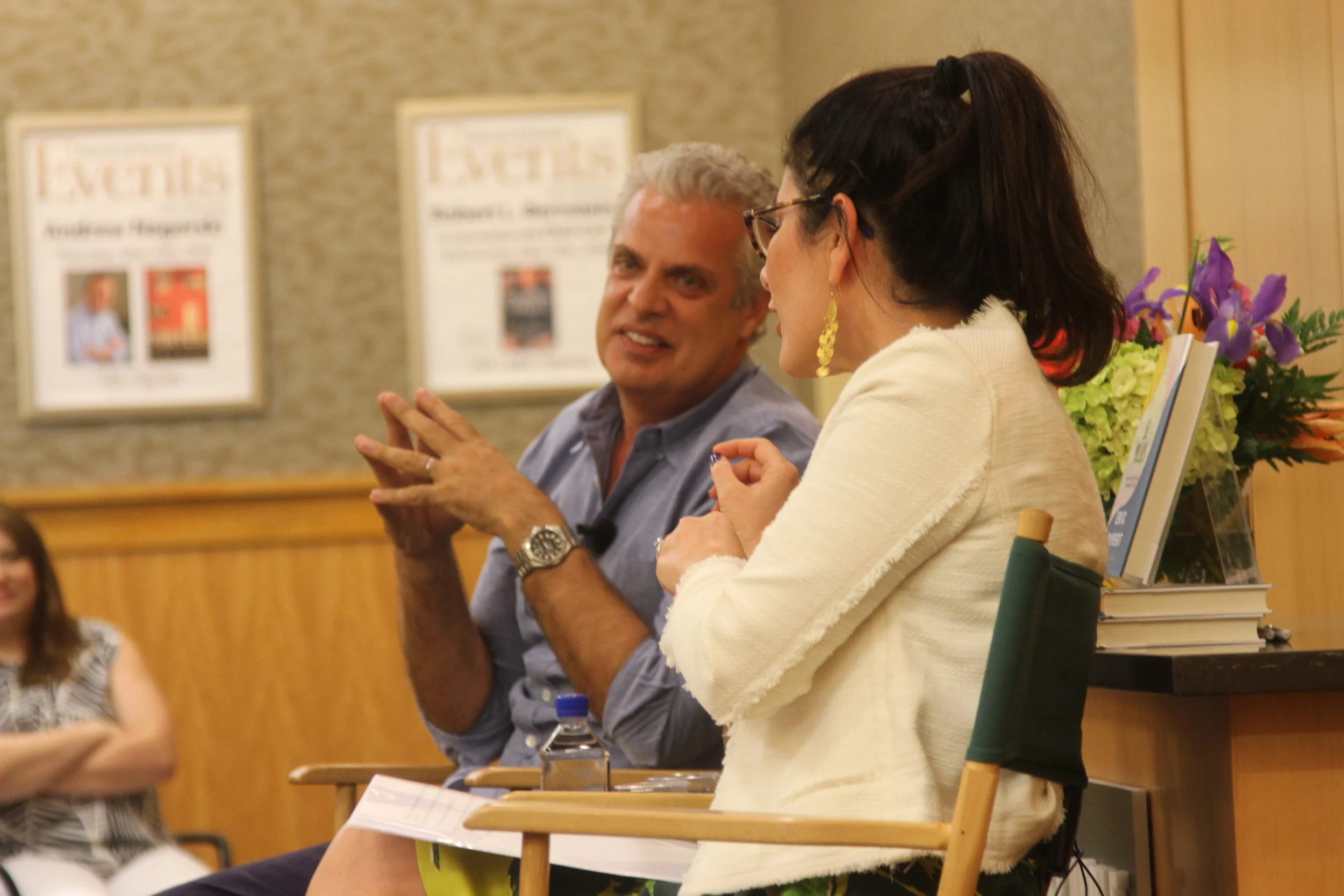Eric Ripert @ Barnes and Noble
Eric Ripert presented 32 Yolks: From My Mother’s Table to Working the Line at Barnes and Nobles, led in conversation by Nilou Motamed, editor of Food & Wine. The event was heavily documented by livestream, but highlights included the following, and may have been influenced by the tequila that they were drinking straight throughout:
What’s harder, writing the book or running Le Bernadin? “This book was a new experience. I often write cookbooks, but writing a memoir was hard 0- luckily I had a co-author who speaks English. But it took 8 years to write, and I serve dinner at LB every night, so I guess the book was harder. A lot of people have asked me why I’m so honest in the book and I’m like, am I supposed to lie? I’m going to go into very small details to be honest to the life I’ve lived.”
On eating in childhood: “My childhood was fantastic until I was 5 years old and my parents got divorced, and it became more complicated. Mom was a very successful businesswoman, but she would wake up at 5 a.m. to cook breakfast, lunch, and a three-course dinner. With different china patterns and different flowers on the table but different meals. I thought at the time the entire planet was eating like me.”
Why he’s not a waiter: “In France being a waiter is a high calling, and they teach it at the same vocational school that they teach cooking. They thought I would be the best waiter in the class but I wanted to become a chef. So they called my mom into the school to have lunch, so she could see what a great waiter I would be. But there was also a French military colonel eating that day. First, I misbalanced his tray and dropped four drinks on his table. Then, when I went to bring more, I slipped on ice cubes and dropped the replacement drinks on his wife. And then I went back for more replacements, and dropped a drink right on his head. Finally he had enough and he yelled – not at me, but at my teacher!”
On Joel Robuchon: “If he saw a little bit of food left on a plate when it came back, it would kill him, and then he would kill you. How could you? You sabotaged this, you didn’t respect the product, do you really want to work here!? He would suffer internally for at least a month, and bring it up at every opportunity. So for me it was all year long."
On Buddhism: “I have a hot temper, and I had a lot of anger in me, I was verbally abusive. I realized all my good employees were leaving because they were like, why do I have to work with this lunatic? But I was very unhappy and I had to reflect on that, and Buddhism spoke to me, it made sense.”
On temple cuisine, which he’s studying at a monastery in South Korea: “Everything is to make you healthier, to bring your immune system to a higher level. But the nuns also help in a spiritual way, they put love and compassion into the food. For them it’s about mindfulness, it’s an exercise.”
The best advice he’s gotten: “To be humble, because every day we are confronted with media and our clientele. Of course we love compliments, but we have to remember why we started in the kitchen, the love of cooking. Being humble keeps you curious, and ego can narrow your vision. But I still have a long way to go.”
Other NYC restaurants: “I bring my family every week to Balthazar. Yakitori Toto. Brasserie Cognac – I’m obsessed with their soufflé, I call ahead for it. Bar Americain – sometimes I crave a burger so I send a busboy to do a trade.”
On keeping his French accent for decades: “It’s a good business.”






